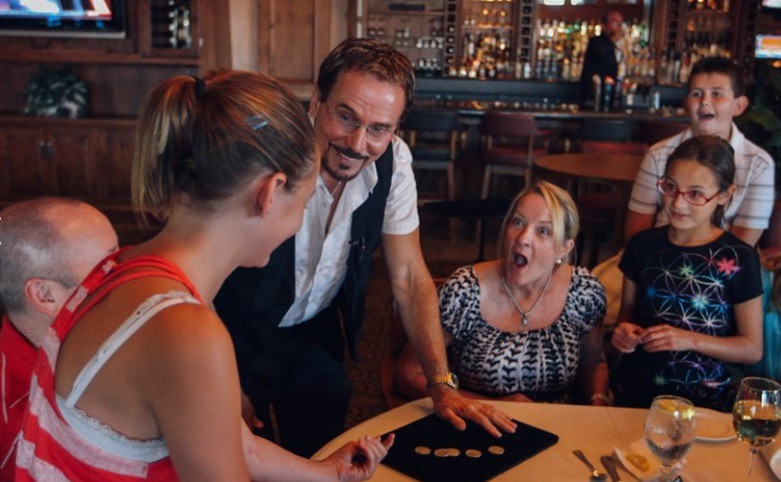Marcie Hume began her documentary career in factual television in London. She has produced and directed a range of series for the BBC, Channel 4, National Geographic, and Discovery Channel. Along with filmmaker Christoph Baaden, her film “Hood To Coast” premiered at SXSW and was released in 350 theaters across the U.S. in 2011. (Press materials)
“Magicians: Life in the Impossible” premiered at the 2016 Hot Docs Film Festival on April 30. The film is co-directed by Christoph Baaden.
W&H: Describe the film for us in your own words.
MH: Magic has so much potential to be beautiful, powerful, and to give you a new perspective on the world. But making a living as a magician means facing the impossible head on. The film looks at what it is to be a magician — the sacrifice and passion it takes to make magic your life.
W&H: What drew you to this story?
MH: There is so much depth to magic, and I wanted to explore at least a few of the aspects of it that intrigue me. Magic is such a profound art form, and twists our perspective like nothing else can, yet magicians seem to be maligned in popular culture. I desperately wanted to give audiences at least a glimpse at another view of magicians and the power and beauty of magic against the backdrop of what it takes to be a successful magician.
W&H: What do you want people to think about when they are leaving the theater?
MH: I want them to feel the worth of pursuing the seemingly impossible. Watching these magicians strive and struggle to create something extraordinary is relatable to anyone who is passionate about something that the rest of the world doesn’t completely understand. But I also want the audience to be blown away by the magic itself.
W&H: What was the biggest challenge in making the film?
MH: The financial burden seemed insurmountable at times. We pursued many lines of financing, none of which covered even a fraction of the budget. But I was determined to the make the film and we finally got there.
W&H: How did you get your film funded? Share some insights into how you got the film made.
MH: We financed the film through a spectacular blend of Kickstarter, loans, small investments, and working in television and funneling our own money into the film. It was a tough push every step of the way, and I would say we tackled it by never even entertaining the idea of not finishing it.
W&H: What’s the best and worst advice you’ve received?
MH: The best advice I ever received was when I was working in British television, and wanted to get my first directing job — I had been producing at that point. Someone told me that for my next gig, I should tell them I’d only take the job if I could also direct. At the time this seemed ballsy and presumptuous to me, but looking back it was easy and the only way to get that first directing gig.
The worst advice has been any advice that is based on fear or reluctance. When you’re trying to complete an independent documentary, there are a thousand ways to give up, and I learned to dart and sprint away from any advice that’s based on unfounded apprehension.
W&H: What advice do you have for other female directors?
MH: Assemble a team of people you like to work with where gender is a non-issue. On some sets it is clear that cast and crew will default to a male voice on set, but on your own films you can create the dynamic you want. You can easily weed out anyone who has a hard time with females in a position of power.
W&H: Name your favorite woman-directed film and why.
MH: I love films by Kim Longinotto. They’re very different from my approach, but I love that somehow in viewing her films you feel her unblinking commitment to making them. As a viewer you become so consumed by the emotion and environment of the film, and they always achieve what to me is an ultimate goal of documentary: to truly give you new insight into others’ experiences of the world. My top pick of her films would be “Rough Aunties.”







